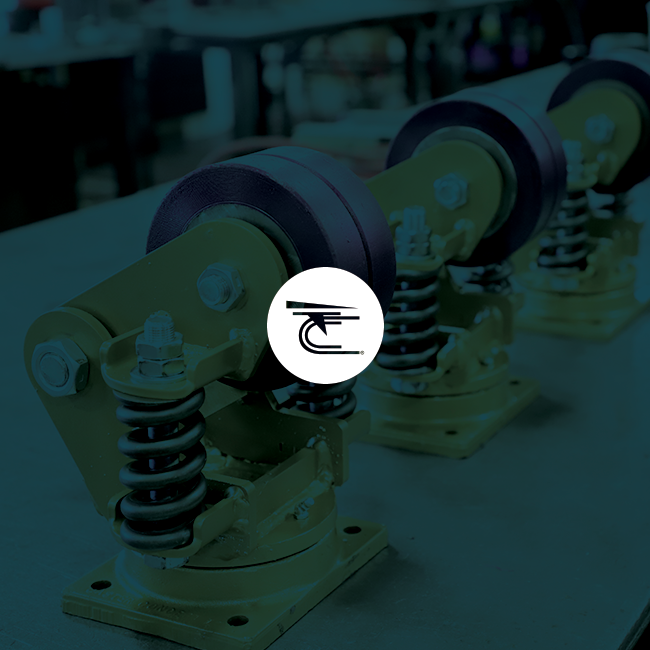

Not so long ago, ergonomics meant a properly positioned chair, or perhaps attempts to reduce repetitive motion.
Now, ergonomics is a field unto itself, permeating every industry from the office to the manufacturing floor. The heavy-duty industrial caster industry is no different, and at Caster Concepts Inc., we realize ergonomics is critical for utility and worker safety. This post is the first in a series devoted to identifying and solving push/pull issues in the manufacturing environment.
In this entry, I’ll focus on wheels. Most common push/pull ergonomic issues arise on carts with 1000-2000 pound capacities, which are common in the automotive industry. Proper wheel size and material can alleviate or prevent problems.
Hard wheels, such as steel or phenolic, are the easy solution – though rarely the best. It’s true that harder wheels are easier to push. Hard wheels will pass your testing standards and resolve push/pull problems, but they create new problems such as noise, maintenance, and floor damage.
First, hard wheels are loud, loud, loud! They create noise – lots of it. Carts are easier to push, but everyone will know when they’re moved.
Second, maintaining phenolic or plastic wheels becomes laborious as debris collects on the wheel surface. Debris is a fact in ever factory environment. However, these wheels must be replaced. This means our maintenance people must commit valuable time to swapping caster wheels – time better spent elsewhere.
Third, steel wheels damage floors. There isn’t a plant manager alive who likes grooves carved into their pristine manufacturing floors. This should never happen.
So, now that hard wheels aren’t an option, where do we turn? I suggest trying to increase the wheel diameter, and considering a polyurethane wheel.
Can I widen the 4-inch wheel to 6- or 8 inches in diameter? Increased wheel diameter requires less effort to start and keep wheels rolling. One key point: Increasing wheel diameter is advantageous, but increasing wheel width is not. Wider wheels increase surface pressure, making wheels more resistant to switching directions.
Most importantly, the wheel material must minimize noise and floor damage. I suggest a polyurethane wheel with an A shore rating of 85-95. This wheel is hard enough to push/pull easily; soft enough to minimize noise, and it resists debris.
Any softer than 85A and the wheel creates too much surface pressure, becoming difficult to move under load. Any harder and the wheel adopts the negative traits of steel and phenolic equivalents, meaning more noise and damage.
In my second post in this ergonomic series, I’ll discuss selecting or modifying the caster rig/wheel housing for maximum push/pull results.
Our team of Caster Concepts engineers will help you determine the best caster wheel for your application. At Caster Concepts, We Build Trust by employing engineers who are experts in ergonomics, and are ready to assist you in solving your unique heavy-duty industrial caster issue.
For further information please contact us at customercentral@casterconcepts.com or call 517-680-7950.
At Caster Concepts Inc., We Build Trust into every product we make. We will work with you to find the product that best fits your needs. Caster Concepts Inc. is an ISO 9001-2008 certified designer and manufacturer of a comprehensive line of industrial casters, ranging from a medium-duty series to a heavy-duty series for any application. CCI also manufactures caster wheels to withstand impact, corrosion, temperature extremes and chemicals found in harsh industrial environments. These multi-functional casters and wheels serve a variety of applications in the industrial, automotive, food service, aerospace, material handling and other demanding markets. Learn more about the entire family of Caster Concepts companies – Reaction Industries LLC, The Machine Center, Fabricating Concepts LLC, and Triple E Manufacturing, by visiting the most comprehensive web site in the caster industry at https://www.casterconcepts.com/.